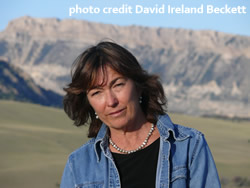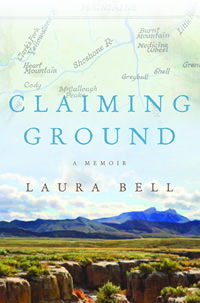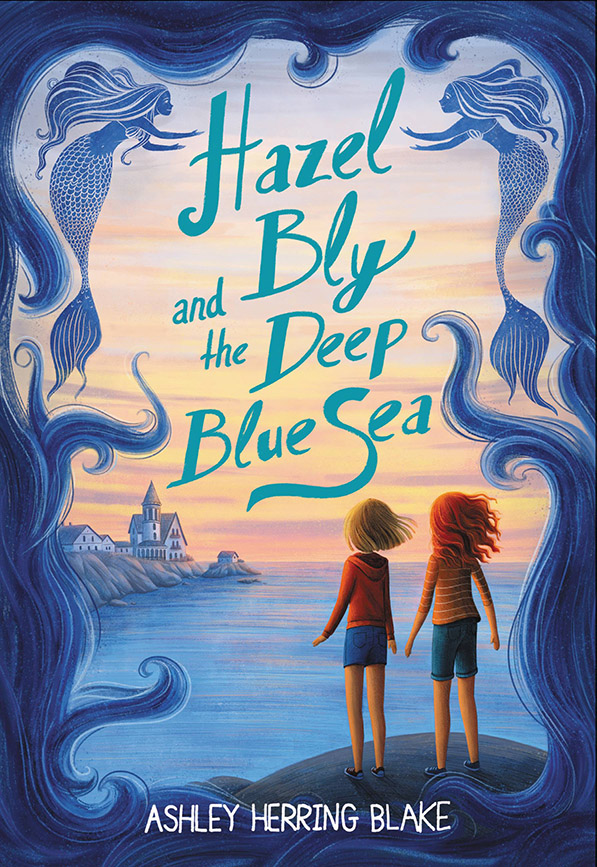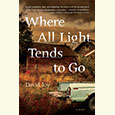Horse, Dog, Land, Sky
In the harsh landscape of Wyoming, Nashvillian Laura Bell finds her elemental home
The temptation is almost irresistible to begin this review with a firm, if not entirely accurate, exhortation: “If you couldn’t put down Elizabeth Gilbert’s Eat Pray Love, you must go out right this minute and buy Laura Bell’s Claiming Ground.”
The parallels are undeniable: both books are memoirs by women who seek adventure and redemption because they feel alienated from their own lives. Finding themselves in an exotic landscape among bizarre but welcoming strangers, each emerges from despair and confusion by dint of her own unexpected ingenuity and tenderness. And the happy ending is a lesson for book-club members everywhere: you can unfasten every last one of your moorings, fling yourself into a hostile sea, and still land safely, grounded and whole. Plus, if you’re Elizabeth Gilbert, you’ll be grounded at the absolute top of the bestseller heap, where you’ll put down stakes for 155 weeks.
And that’s why it’s so tempting to make the comparison. Despite the obvious differences, Laura Bell has something new and important to say to the audience Elizabeth Gilbert cultivated. Claiming Ground can more than hold its own against any survivor narrative of failed love and misplaced ambition, against any epic quest for understanding and mercy, and in language so tempered, spare, and beautiful that it rivals any poem’s. In the context of celebrity tell-alls and fabricated survivor narratives, literary worth is only rarely the measure of a memoir’s success, but if ever a book deserved to be a bestseller, Claiming Ground surely does.
 The book begins in 1977, when Bell—who grew up in Nashville—travels to Wyoming with her sister’s family to help with their new baby while her brother-in-law works on a paleontological dig. At twenty-two and a new college graduate, Bell has no plans for her future, nor even any dreams beyond her childhood fantasy of living alone in the wilderness and working with dogs and horses. Home is simply a place where she doesn’t belong: “I was at a loss as to how to live my life and where to dig in,” she writes. “I saw people with companions, homes, meaningful work, but I had no idea how to become them, how to spin that web of comfort and belonging around me. I felt alone, unmoored and unworthy.”
The book begins in 1977, when Bell—who grew up in Nashville—travels to Wyoming with her sister’s family to help with their new baby while her brother-in-law works on a paleontological dig. At twenty-two and a new college graduate, Bell has no plans for her future, nor even any dreams beyond her childhood fantasy of living alone in the wilderness and working with dogs and horses. Home is simply a place where she doesn’t belong: “I was at a loss as to how to live my life and where to dig in,” she writes. “I saw people with companions, homes, meaningful work, but I had no idea how to become them, how to spin that web of comfort and belonging around me. I felt alone, unmoored and unworthy.”
The day before she’s set to leave Wyoming with her sister, Bell meets a sheepherder. It’s summer, and the old man has stayed behind with the ranch’s bucks while all the ewes and lambs are pastured at the top of the Big Horn Mountains. Their absence has left empty the winter camps below, “any one of which,” Bell notes, “could have housed my childhood dreams.” Impulsively, she asks the sheepherder if he needs a hired hand. He doesn’t but offers to share his groceries and give her the use of a cabin, a horse, and a rifle. The summer she spends alone at the Cow Creek cabin, identifying wildflowers, hunting arrowheads, and riding trails “that lead down into the depths of Devil’s Canyon” is the beginning of a love affair with a brutal but gorgeous landscape that may be the perfect objective correlative for Bell’s own expansive but wary soul. “I’d headed west to find refuge in the empty spaces where I still live,” she writes. “Among the sage and rocks and transient lives of the herders, I hid as others might hide in heroin or alcohol.”
 Stories from the hidey holes of heroin and alcohol and other realms of human despair are, of course, exactly what memoirs typically provide. So readers expecting the kind of loquacious candor that has Elizabeth Gilbert describing in detail an epiphany on her bathroom floor might be disappointed by the urgent restraint of Bell’s language in Claiming Ground. Bell is brave and honest about terrible life events—including abortion, divorce, and the death of a child—but she is also clearly uneasy in confessional mode. “I’ve lived my life by closing doors and moving on,” she writes, a modus operandi that doesn’t seem especially compatible with the impulse to write a memoir. Even the normally straightforward nature of a life’s story is blurred by the elliptical style Bell employs here. The spiraling narrative, which frequently loops ahead and then returns to the past before leveling out again at the story’s present moment, can make actual events difficult to place in sequence, even with the time stamps Bell offers at the beginning of most chapters.
Stories from the hidey holes of heroin and alcohol and other realms of human despair are, of course, exactly what memoirs typically provide. So readers expecting the kind of loquacious candor that has Elizabeth Gilbert describing in detail an epiphany on her bathroom floor might be disappointed by the urgent restraint of Bell’s language in Claiming Ground. Bell is brave and honest about terrible life events—including abortion, divorce, and the death of a child—but she is also clearly uneasy in confessional mode. “I’ve lived my life by closing doors and moving on,” she writes, a modus operandi that doesn’t seem especially compatible with the impulse to write a memoir. Even the normally straightforward nature of a life’s story is blurred by the elliptical style Bell employs here. The spiraling narrative, which frequently loops ahead and then returns to the past before leveling out again at the story’s present moment, can make actual events difficult to place in sequence, even with the time stamps Bell offers at the beginning of most chapters.
In the end, Claiming Ground demands that a reader surrender all prior notions of what a memoir should be, simply because of what the book most wonderfully is. Bell’s stories of herding cattle and sheep—”a luminous, drifting mass that spills in rivulets through gulleys and rises up hillsides, conforming intricately to the imperfect shape of earth”—are like bulletins from a primeval past, from an elemental panorama unavailable to the vast hordes of humanity. But it’s not just the beauty of the land—”the bare-bones immensity of Wyoming [that] can make you feel like a sacrifice left on a slab for the gods to pick clean”—that she captures. It’s also the beauty of the English language itself, which Bell seems to see with the same new-to-everything eyes that she first brought to the Wyoming terrain. For Bell, the wind “whispers” a horse’s tail; duct tape “spider-webs” a raincoat; calves “mother up” and settle in at dusk; stripping down, she “heels” her own boots off. It’s hard not to suspect that even readers already intimately familiar with the Wyoming landscape would find it new again after experiencing it through the endlessly inventive language of this book.
This is a landscape, Bell writes, “that has been my constant, more sure than any man’s touch, less frail than the walls of any home.” Readers willing to head to Indonesia with Elizabeth Gilbert would do even better to follow this masterful writer to Wyoming, where the land “offered up gold coins of sunlight” and holds a person “constant under a bewildering sky of stars.”
Laura Bell will discuss Claiming Ground at Davis-Kidd Booksellers on March 31 at 7 p.m.


